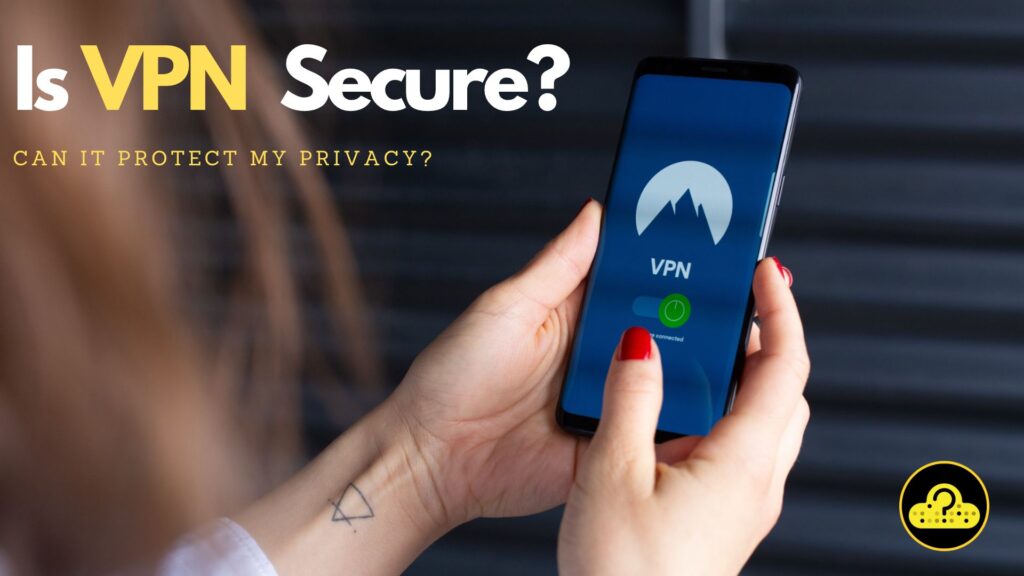On This Page: [hide]
In the 21st century, when privacy breaches and online surveillance are on the rise, many individuals are turning to Virtual Private Networks (VPNs) as a means to safeguard their online activities. However, it’s natural to wonder if VPNs are truly secure and capable of protecting your privacy. In this article, we will delve into the technical aspects of VPNs, exploring the security protocols and privacy policies involved to help you understand their efficacy.

What Is a VPN?
Before we dive into the security aspects, let’s briefly discuss what a VPN is. A Virtual Private Network (VPN) is a technology that establishes an obfuscated connection between your device and the internet. By routing your internet traffic through a remote server operated by the VPN provider, your online activities become more private and secure.
VPN Security & Protocols
One of the primary factors that determine the security of a VPN is the choice of security protocols. These protocols are responsible for establishing the encryption and authentication mechanisms that protect your data while in transit. The most common and popular(because there are a lot of them) security protocols used by VPNs include:
OpenVPN
OpenVPN is an open-source protocol known for its strong security and versatility. It uses OpenSSL libraries and supports a wide range of encryption algorithms, including AES (Advanced Encryption Standard). OpenVPN is highly regarded for its reliability and is considered one of the most secure protocols available.
IPSec (Internet Protocol Security)
IPSec is a widely used protocol suite that operates at the network layer of the OSI model. It offers robust security through a combination of authentication, encryption, and key management protocols. IPSec is commonly used for creating secure site-to-site VPNs and is available in two modes: Transport mode and Tunnel mode.
WireGuard
WireGuard is a relatively new VPN protocol gaining popularity due to its simplicity and high-performance characteristics. It aims to provide secure connectivity with minimal lines of code, making it easier to audit for potential vulnerabilities. WireGuard utilizes modern encryption algorithms, such as ChaCha20 and Curve25519, for efficient and secure communication.
VPN Companies Privacy Protection Measures
When selecting a VPN provider, it’s crucial to consider their privacy protection measures. Reputable VPN companies prioritize user privacy and implement various practices to safeguard your data. These measures may include:
No-Logs Policy
A reliable VPN service will have a strict no-logs policy, ensuring that they do not store any records of your online activities. This means that even if compelled by legal authorities, there will be no information to share.
When evaluating the security of a VPN, it’s essential to consider the privacy policy of the VPN provider. A reputable VPN service should have a strict no-logs policy, meaning they do not keep any records of your online activities. This policy ensures that even if a third party requests user data, there would be no information to hand over. It’s advisable to research and choose a VPN service that has a proven track record of upholding its no-logs policy.
Strong Encryption
Look for VPN providers that employ robust encryption algorithms, such as AES-256. This level of encryption ensures that your data remains secure and unreadable to anyone attempting to intercept it.
Transparent Privacy Policies
Trustworthy VPN companies provide clear and concise privacy policies, outlining the data they collect, how it’s used, and whether it is shared with third parties. It’s important to review these policies to ensure they align with your privacy expectations.
Data Protection Jurisdiction
Consider VPN providers that operate in jurisdictions with favorable data protection laws and regulations. Some countries have stricter privacy laws that prohibit VPN companies from sharing user data with authorities or other entities. This is where geo-blocking comes as a reason to choose VPN.
Identity Verification and Privacy
To further enhance privacy, some VPN providers have adopted a “no KYC” (Know Your Customer) approach. This means that during the signup process, they do not require personally identifiable information, such as your name, address, or payment details. By eliminating the need for identity verification, VPN users can maintain a higher level of anonymity, making it difficult for anyone to trace their online activities back to them.
Is VPN Secure – Measures
Apart from encryption protocols and privacy policies, VPNs can offer extra security features to enhance your online privacy. Some common features include:
Kill Switch
A kill switch is designed to protect your privacy by immediately disconnecting your internet connection if the VPN connection drops. This prevents any data from being transmitted outside the secure VPN tunnel.
Split Tunneling
Split tunneling allows you to selectively route your internet traffic through the VPN while allowing other applications or devices to access the internet directly and thus preventing VPN leaks. This feature can be useful when you need to access local resources while simultaneously using the VPN for privacy-sensitive activities.
Is VPN Secure – Conclusion
In conclusion, VPNs can indeed provide a significant level of security and privacy for your online activities. By utilizing strong encryption protocols, adhering to a strict no-logs policy, and implementing additional security measures, VPNs can help protect your data from prying eyes. However, it’s crucial to choose a reliable VPN service that has a solid reputation and a track record of prioritizing user privacy. Remember to do thorough research before selecting a VPN provider to ensure your online privacy remains intact.







